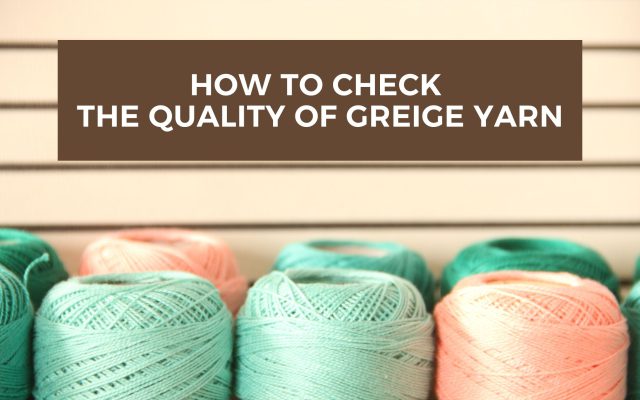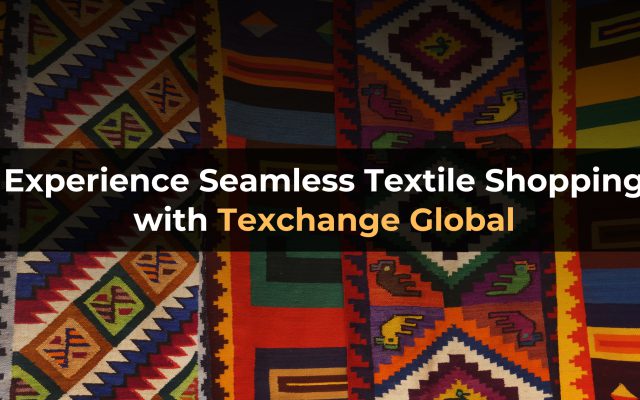While the textile and apparel industry is one of the significant contributors to the national economy, generating thousands of employment and exports each year, it is also one of the most pollution-causing industries in the world. And when the modern world is moving towards sustainability, with more organizations starting to take strong action against environmental hazards, textile manufacturers in India and overseas are still struggling to find their balance.
Every year, hundreds of kilos of fabrics and garments are dumped into landfills due to poor inventory management. However, this is not only restricted to production and inventory but also extends to consumption and waste.
Pre and Post Consumer Textile Waste
Textile waste is divided into pre-consumer and post-consumer waste. Pre-consumer textile waste takes place at fabric sourcing and inventory management stages, respectively and is generally generated by top fabric manufacturers in Delhi if it’s India, for example. Pre-consumer textile waste includes leftover fabric scrapes, selvedges, and unsold and torn fabrics.
Post-consumer textile waste occurs at the buyer’s end and includes used apparel, bedsheets, towels, carpets, medical apparel, and bedsheets.
However, most textile waste is generated at fabric sourcing (when we buy and sell fabric online) and inventory management. And therefore, this article will share a few tips and insights into how fabric buyers and sellers can reduce textile and garment waste and address the cause at the root.
Businesses Should Plan Their Sourcing in Advance
The advancement of technology, like the TEXchange Global trading platform, has made planning considerably easy. However, it is surprising that many textile manufacturers in India and abroad still fail to adequately strategize, resulting in ordering fabrics that aren’t required in excessive quantities.
Ideally, before buying wholesale fabric online in India, it is crucial to clearly understand the fabric type and quantity required. Many suppliers offer the option to try samples before placing bulk orders. This allows you to evaluate the feel, texture, and quality of the fabric, and by doing this, you can avoid ordering excessive amounts of wrong fabrics that would only add to your waste management challenges.
Leveraging the available technological tools and sampling services from sourcing partners allows for better planning and informed decision-making in the textile industry. This not only helps avoid unnecessary fabric waste but also facilitates efficient cost management.
Improve Your Inventory Tracking with Automated Inventory Management System
A modern inventory management system is a cloud-based solution that streamlines inventory demand and supply to provide precise and real-time global visibility across all sales channels.
Leverage the power of modern systems to maximize your warehouse efficiency, improve process and performance time, and make your manufacturing unit more sustainable and eco-conscious. Tracking every stock move allows you to make informed decisions in the long term.
Work with Reliable Suppliers via Certified Trading Platforms
Establishing strong working agreements and supplier relationships is crucial in the textile industry. Building a solid working bond ensures the timely delivery of fabrics, reducing the likelihood of excessive ordering. Moreover, in cases where you no longer require a particular fabric, a good relationship allows for returns to the supplier.
One of the best ways to find reliable suppliers is through certified trading platforms such as Damodar Menon International and TEXchange Global Online. These platforms provide a trustworthy trading environment where you can connect with reputable suppliers. These platforms allow you to access a wide network of certified suppliers worldwide, enhancing your chances of finding reliable partners for your textile sourcing needs.
Regardless of what you choose – opt to purchase wholesale cotton fabric online via TEXchange Global or follow the traditional route with Damodar Menon, by fostering a positive and collaborative relationship with your suppliers, you can establish a streamlined supply chain, ensuring timely fabric delivery and minimizing excess orders. For more details, visit www.damodarmenon.com
Adopt a Lean Manufacturing Process
Whether you are a fabric manufacturer in Delhi or a fashion designer in New York, Implementing lean management in the production process brings several benefits to your company.
Lean Manufacturing is a systematic approach to achieving the shortest possible production cycle by identifying and eliminating waste from the process while continually seeking improvement. It focuses on removing non-value-adding activities and maximizing the utilization of value-adding events in order to enhance efficiency and quality throughout the production process.
The benefits of Lean Manufacturing in Textile Production include higher production rates, lesser wastage of raw material, lower rate of sourcing, increased productivity, improved profitability, reduced lead time, and overall efficiency enhancement. Lean management ensures lower costs while maintaining improved quality throughout the process.
Perform Regular and Continuous Waste Management Audits
Waste management in the textile industry is a critical problem. Tackling it at the root could help textile businesses in the long term. And the best way to do so is by conducting continuous and timely waste management audits to ensure the system you have implemented to curb textile waste works effectively.
Consider these questions while auditing your process:
- Where the waste is being generated
- What kind of waste is generated
- Can it be recycled
- Can we improve the production process with modern technology to reduce waste
- What is the outcome of the waste management practice
Consider Recycling, Upcycling, and Sustainable Fabrics
As the global textile industry moves towards eco-friendly products and sustainability, recycled and upcycled fabrics play a promising role in achieving this objective.
Recycled fabrics are crucial in the move towards sustainable fashion, as they are made from consumer waste like plastic bottles.
The benefits of using recycled fabrics include reduced production cost, less wastage, lower energy consumption, zero farming, and reduced CO2 emissions.
For fabric manufacturers in India concerned about additional processing, upcycled fabrics offer a viable option as they are created by repurposing old fabrics.
Sustainable fabrics have become more mainstream, with companies including them in their inventory. By adopting sustainable fabrics, you can minimize environmental impact and contribute to the shift towards eco-friendly fashion.
For quality sustainable fabrics, including upcycled and recycled textiles, Damodar Menon International is your go-to textile trading company in India. If you’re in search of greige cotton fabric at the best price, TEXchange Global is the ideal online platform. It offers a cloud-based, fully automated solution specifically designed for seamless textile buying and selling among B2B businesses.




